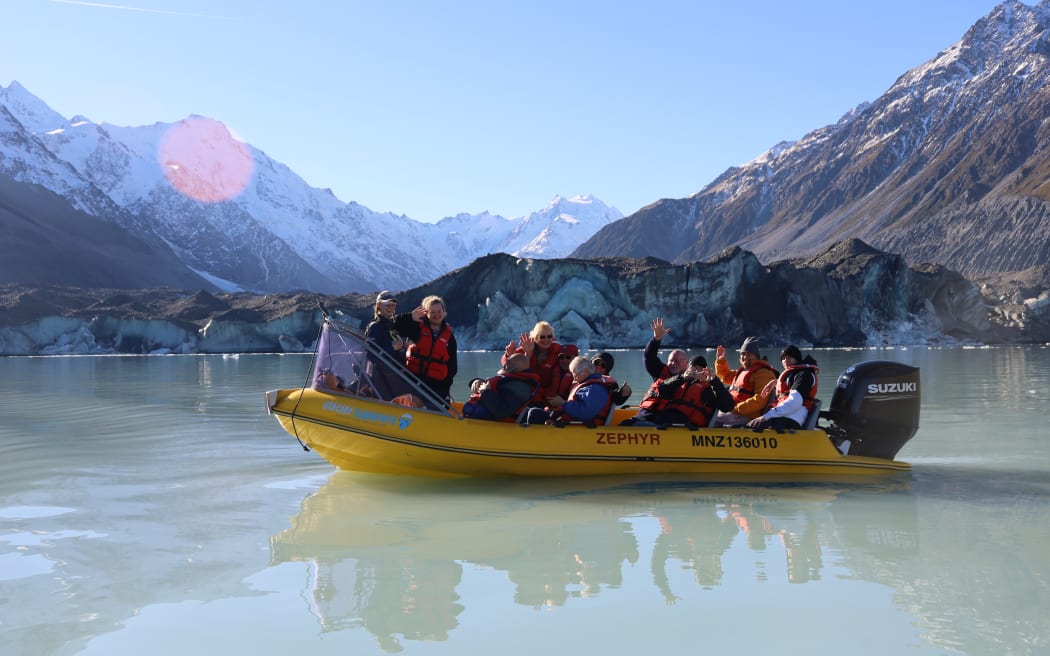
Rachel Soudakoff's company provides trip preparation information, safety briefings, and first-aid, all in New Zealand Sign Language. Photo: Supplied / Rachel Soudakoff
The founder of Deaf Adventures is on a mission to make Aotearoa's great outdoors more accessible for Deaf people.
"If you were a deaf person contacting a tourism company and they told you, as an individual, that you couldn't participate, how would that make you feel about travelling around New Zealand?" Rachel Soudakoff asks.
"It would make me feel like I don't want to, I'd lose my motivation to travel and participate."
Soudakoff is in charge of the world's only deaf-owned adventure company, with New Zealand's towering mountains and native forests providing the ideal playground to explore. The trips are organised solely for deaf and sign language users. She provides trip preparation information, safety briefings, and first-aid all in New Zealand Sign Language (NZSL).
Soudakoff, originally from Los Angeles, has been hiking since she was a baby, bumbling along forest trails with her parents. She moved to New Zealand in January 2021.
In the USA, Soudakoff was involved with an American Deaf travel company but said when she arrived in New Zealand, she was shocked to see no such thing here. Five months later, she founded Deaf Adventures.
Its goal was "to provide Deaf Kiwis with the opportunity to experience the beauty that Aotearoa has to offer", she said.
The company's first trip - a four-day adventure tour with 20 Deaf people - ran during Sign Language Week in May of 2021.
"People started to get to know me, to know about Deaf Adventures and get interested in what I was doing."
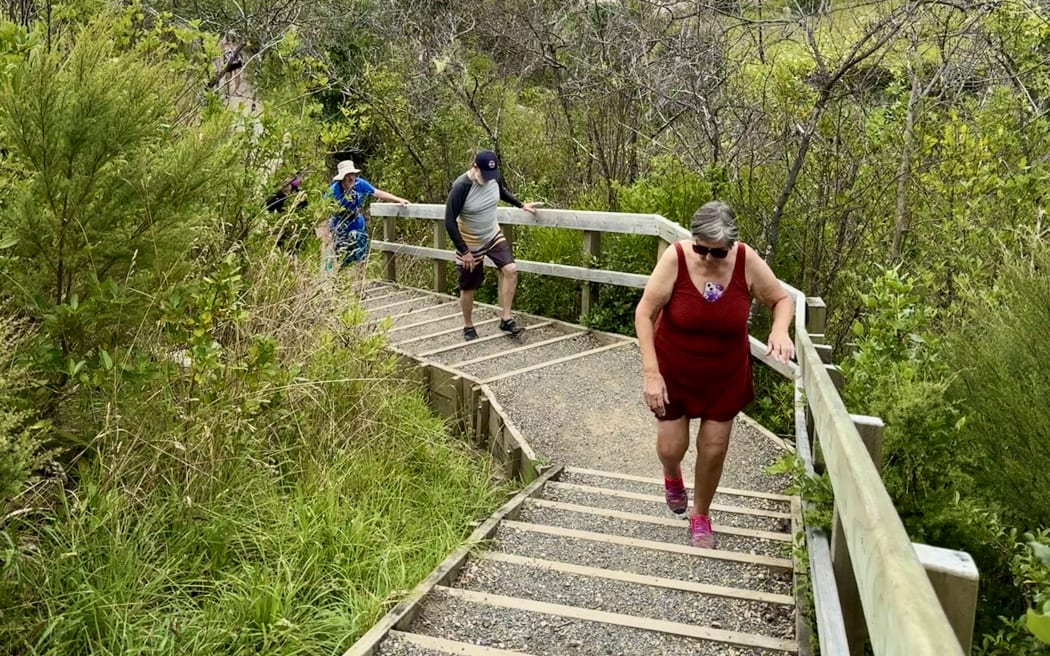
Members of a Deaf Adventures trip exploring Milford Sound in January. The company gives deaf people the confidence to go travelling, Rachel Soudakoff says. Photo: Supplied / Rachel Soudakoff
Empowering Deaf people
Soudakoff said she was finding many Deaf Kiwis had never even explored their own country; they did not know where to go or where was accessible.
"So part of my role is to share this information in sign language. I organise everything and people can just show up and take part.
"It gives Deaf people the confidence to go."
A lot of Deaf people in New Zealand loved the idea and that was when her adventure company started to grow.
Deaf Adventure's first proper tramping trip was hiking the Abel Tasman in November 2021.
She has since run more than nine trips around New Zealand, including several Great Walks with more than 100 participants. She has also just completed an 18-day tour hosting 10 Deaf foreigners, the first of its kind.
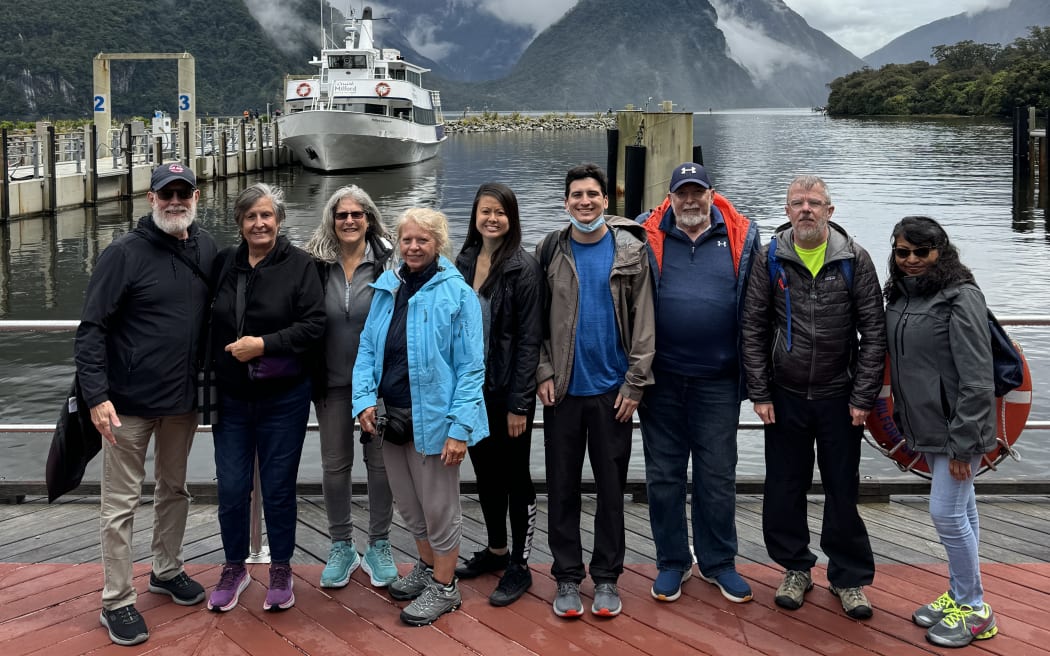
Deaf Adventures exploring Milford Sound in January. Photo: Supplied / Rachel Soudakoff
Another important part of Soudakoff's job is her advocacy work.
Before each tour, she will reach out to any other external company involved to check if they can accommodate Deaf people; for example, by ensuring information videos have captions.
"I often find myself having to educate them on awareness of Deaf culture as well as the needs of the Deaf community," Soudakoff said.
"Even finding out simple things such as if we're going to explore a cave, I ask if there will be enough lighting so the tour participants can communicate using sign language."
Encouraging companies to broaden their horizons
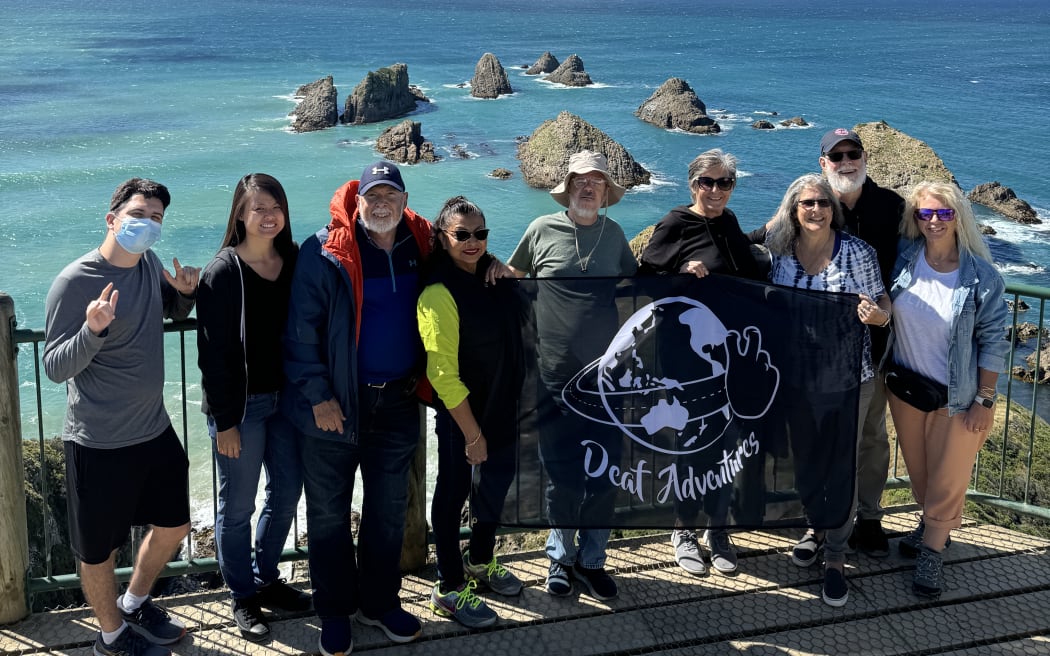
Deaf Adventures at the bottom of the South Island, at Nugget Point Lighthouse. Photo: Supplied / Rachel Soudakoff
In preparation for a recent trip to Stewart Island, Soudakoff contacted three kiwi-spotting tour companies.
One company said they could not accommodate Deaf people. Another just sent through a quote. Only the final company said it would be happy to provide Soudakoff with a specialised programme.
"After we finished the tour, I was able to go back to that first company that declined us and let them know, 'Hey, we actually did complete this tour and here's an example of how it worked, so if you're approached again in future by Deaf people, you know you can actually do it and can broaden your customer base'."
She usually reaches out to tour companies through the New Zealand Relay Service, but some people seem uncomfortable talking on the phone through an interpreter.
"Some companies think it's a cold call or spam, and they just hang up."
"I then have to email and explain I'm Deaf and am trying to ring and talk about a particular topic."
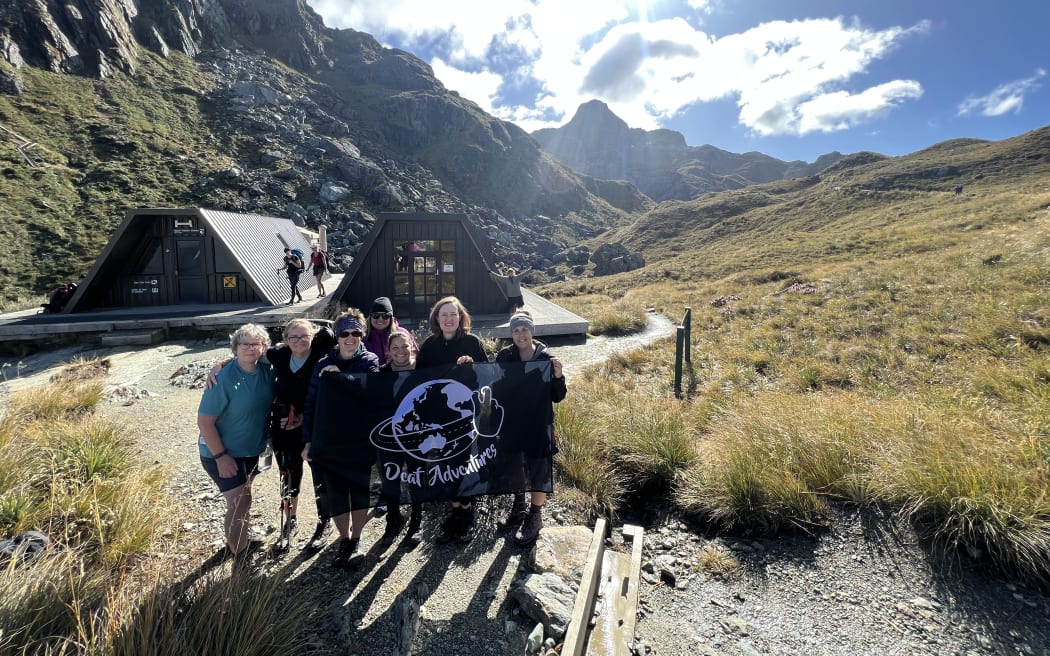
Photo: Supplied / Rachel Soudakoff
Soudakoff said without access to information, whether through transcripts or in NZSL, Deaf people were at risk of injury.
"Or even worse, they may not feel like they are capable of going out and experiencing the wilderness at all."
She is encouraging tour companies to keep their minds open when it comes to working with Deaf tourists; to try and make things work.
"And any preparation these companies do beforehand means they then have that resource on hand to be used again for any future Deaf person wanting to be involved."
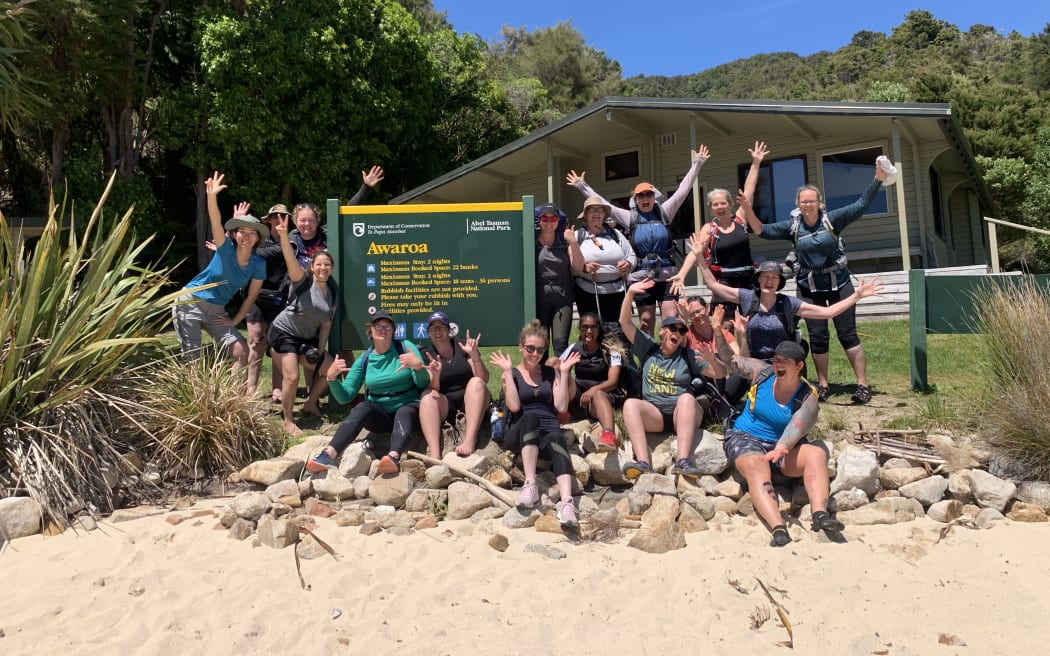
Photo: Supplied / Rachel Soudakoff
This year, she is running nine adventures, including several sailing adventures, where she has partnered up with Canadian captain Troy Stilwell and his Deaf sailing company, Nautilus Sailing Adventures.
Together, they have planned sailing trips over the next two years, including around the British Virgin Islands and along the French Riviera.
The latest trip begins next week, hiking the Milford Track Great Walk.
"The great outdoors is the best form of education, nothing can beat hands-on, practical encounters that will leave you with long-lasting life lessons. And Deaf people deserve the opportunity to experience these encounters, if not more than anyone else since many Deaf people face communication barriers in our everyday lives," she said.
"Because hiking and going into the wilderness is the one place where the method of communication doesn't matter. As long as you can lace up your shoes and get to the summit, the achievement feels the same for anyone."

